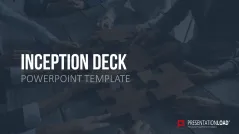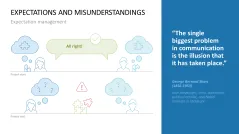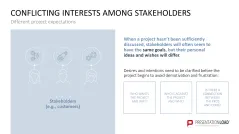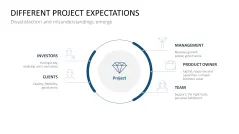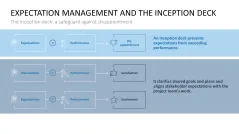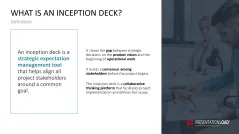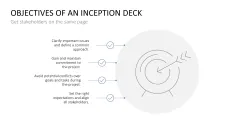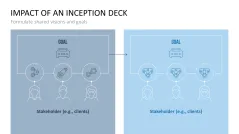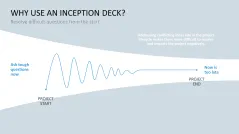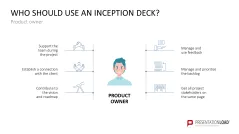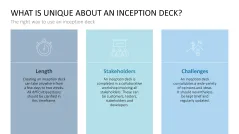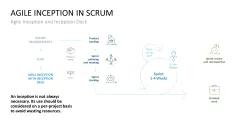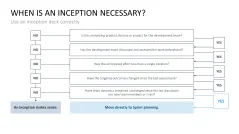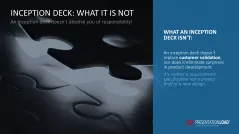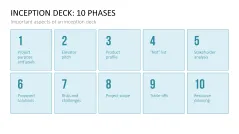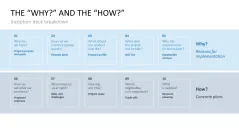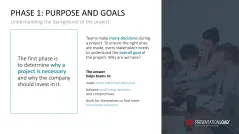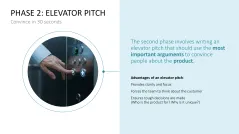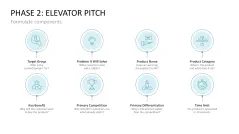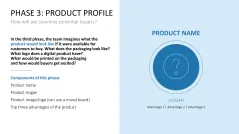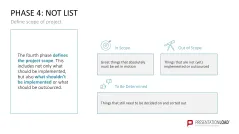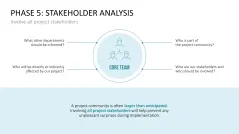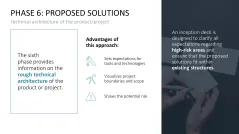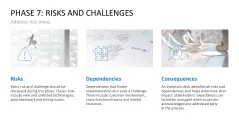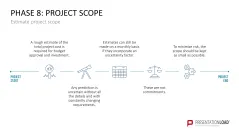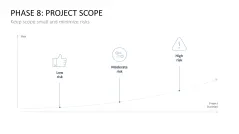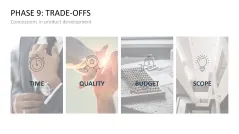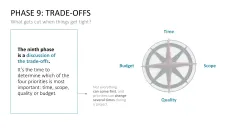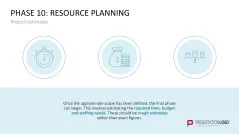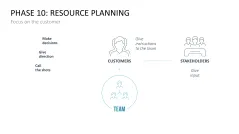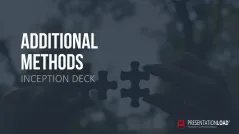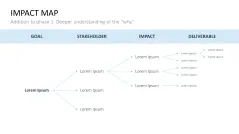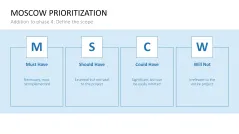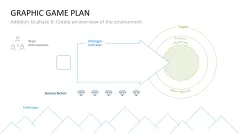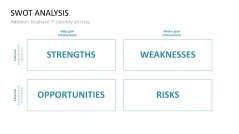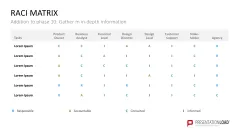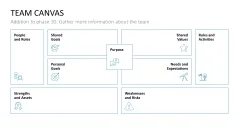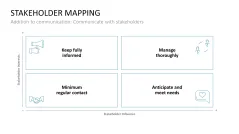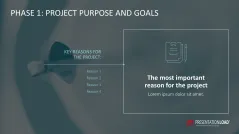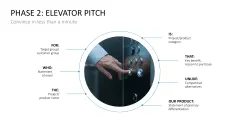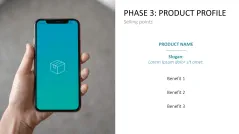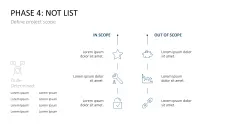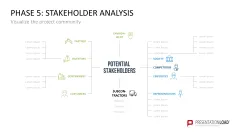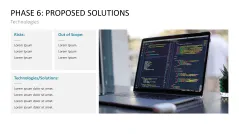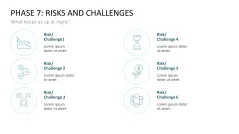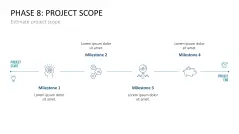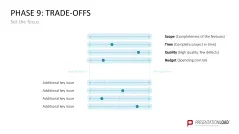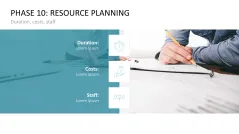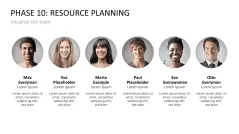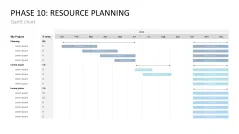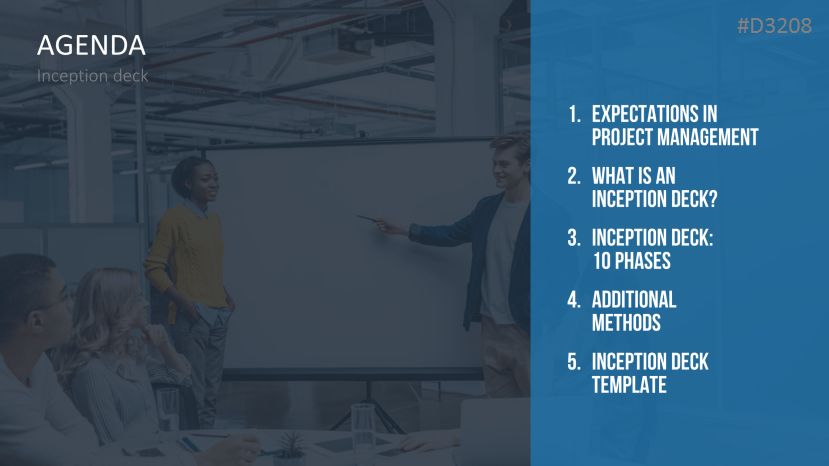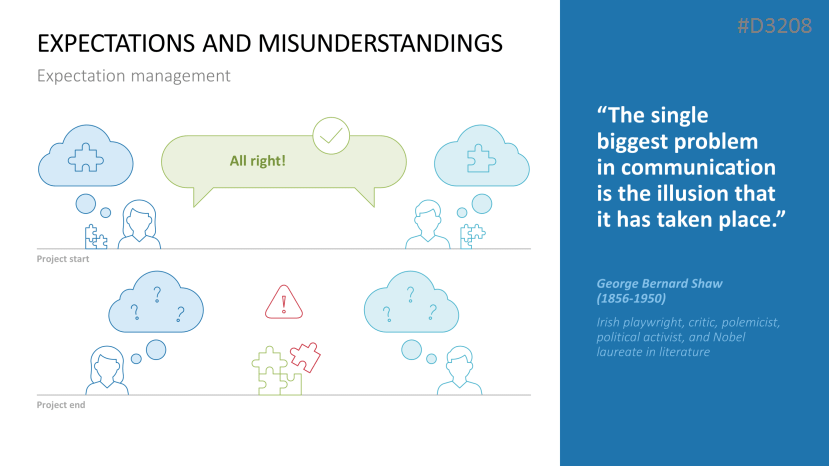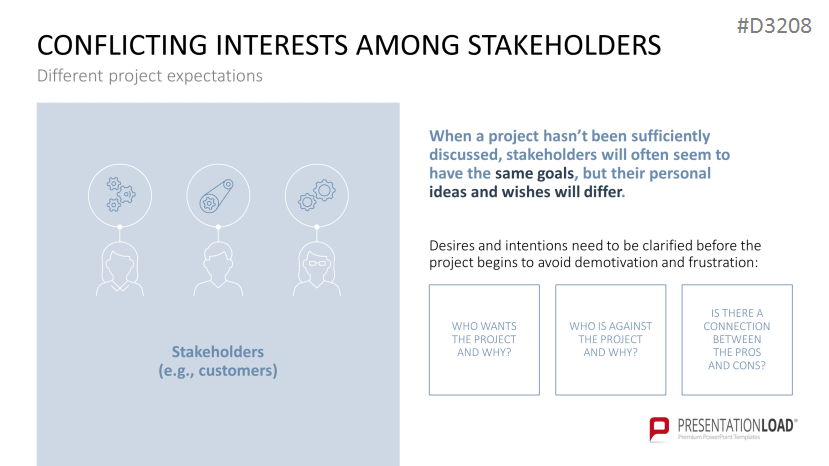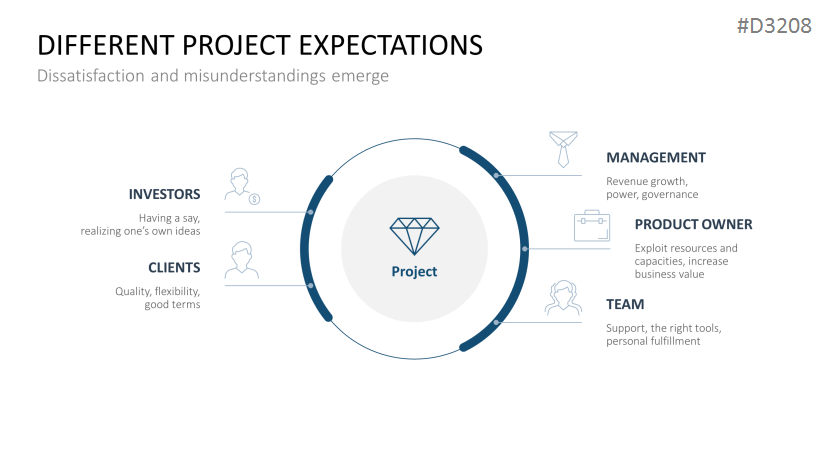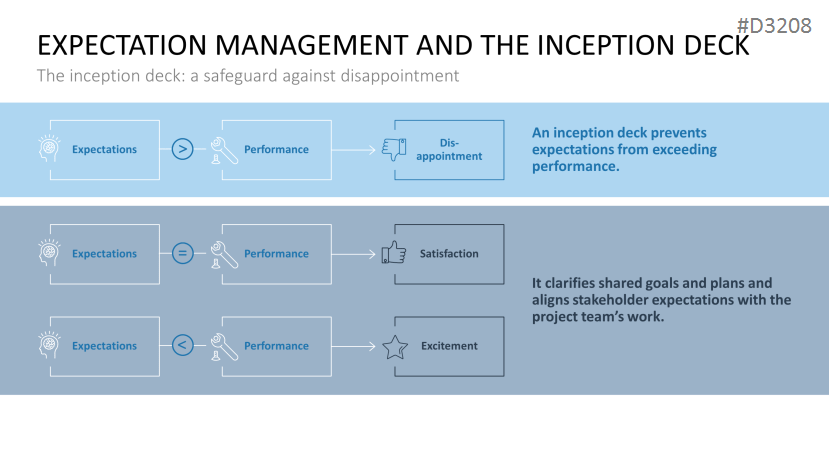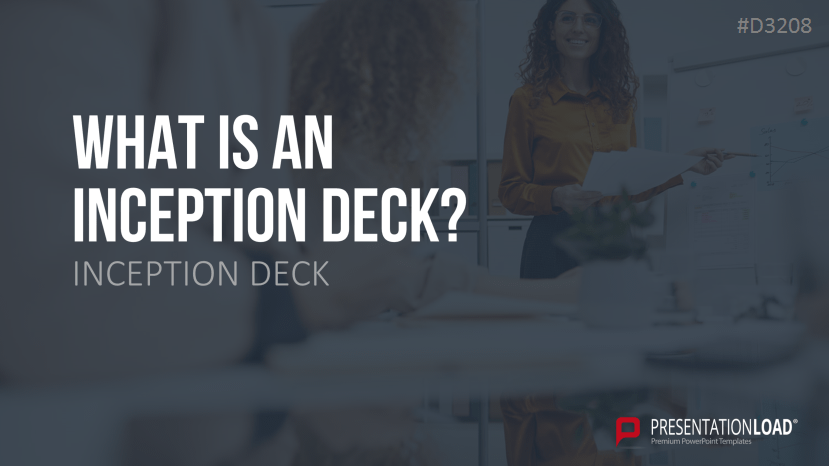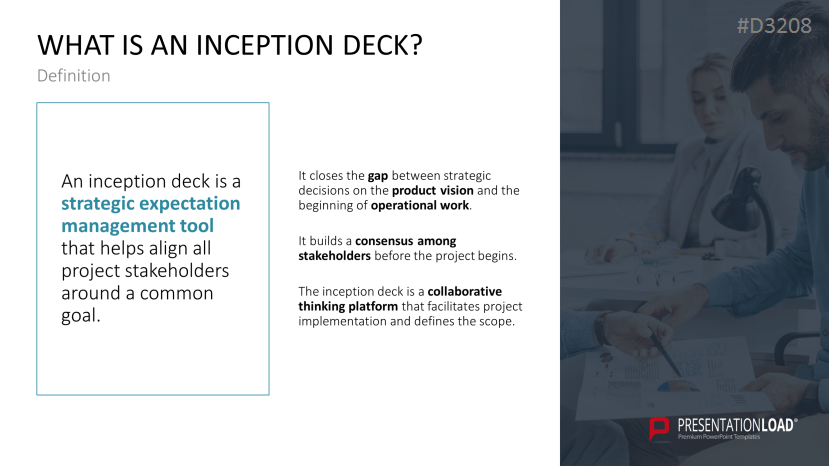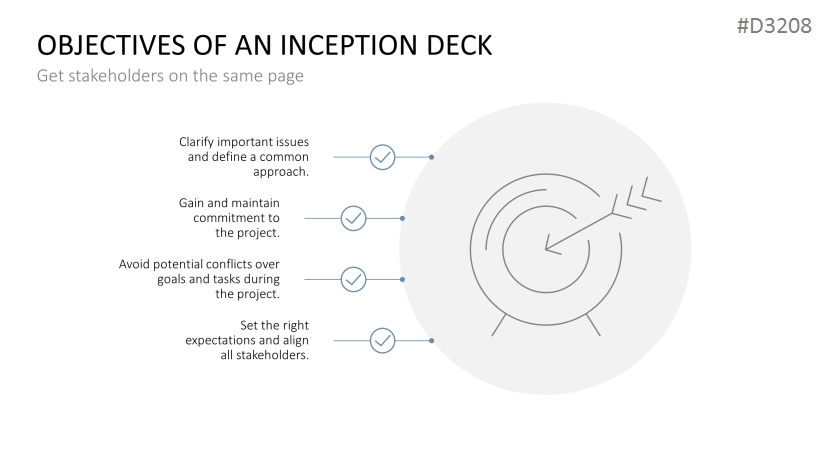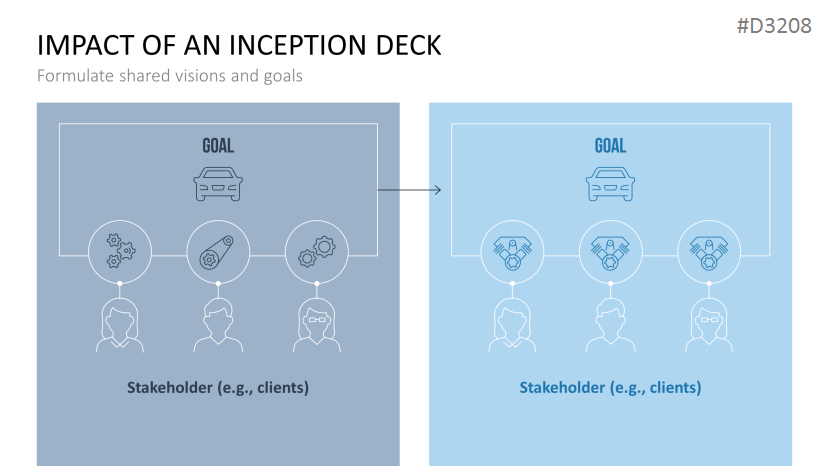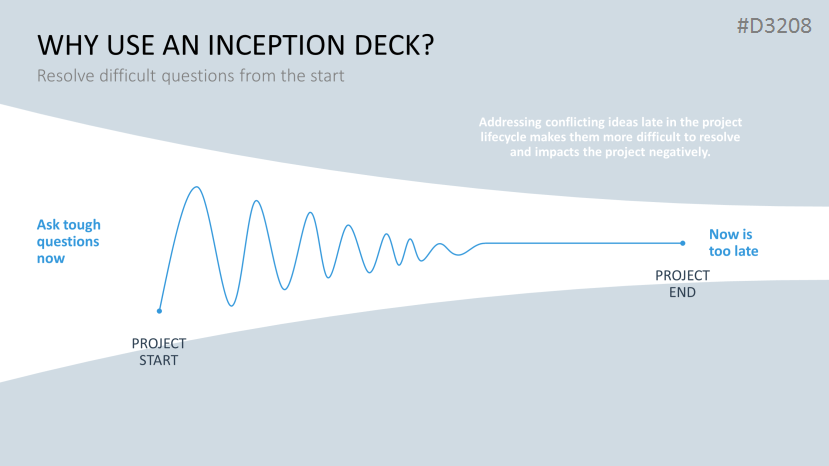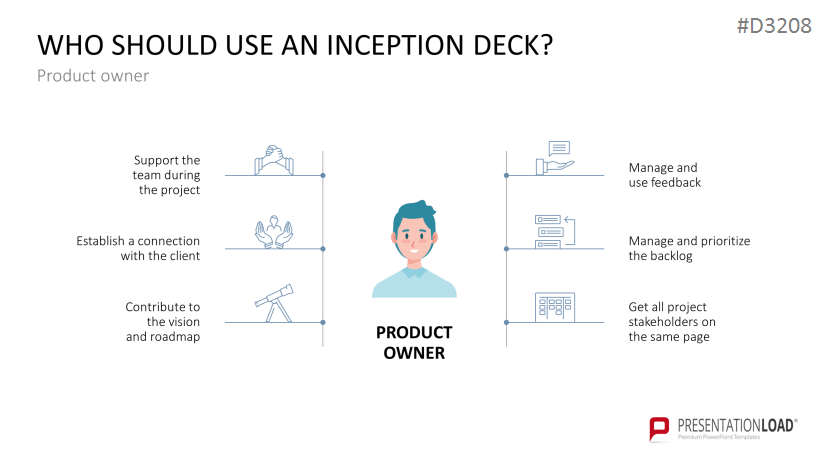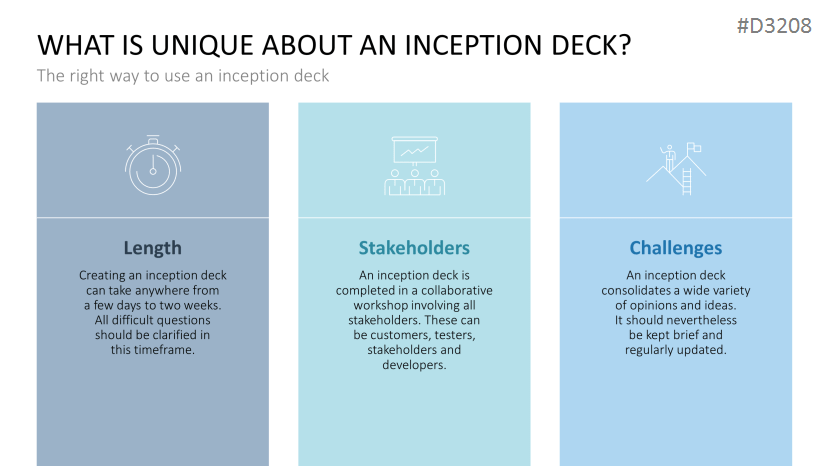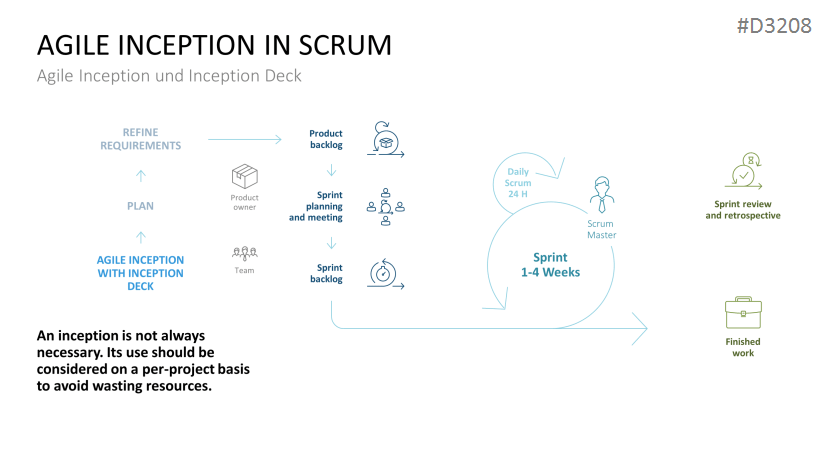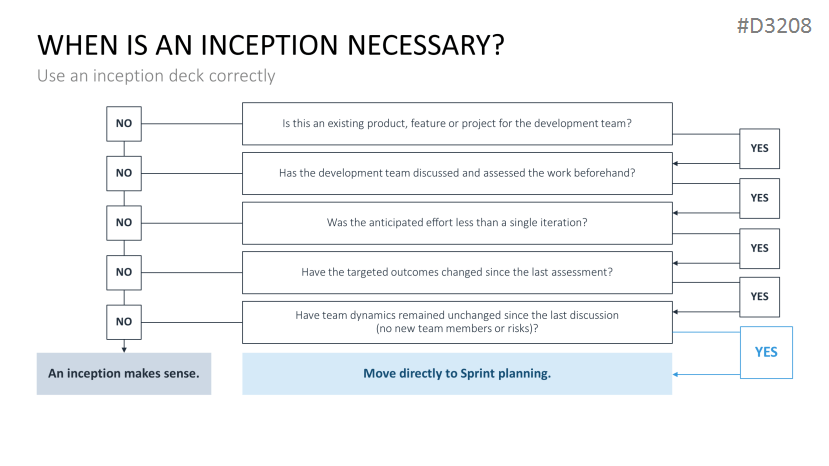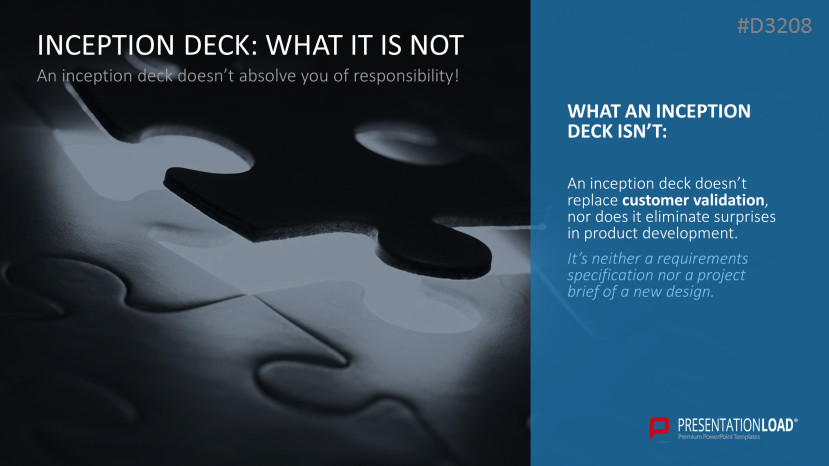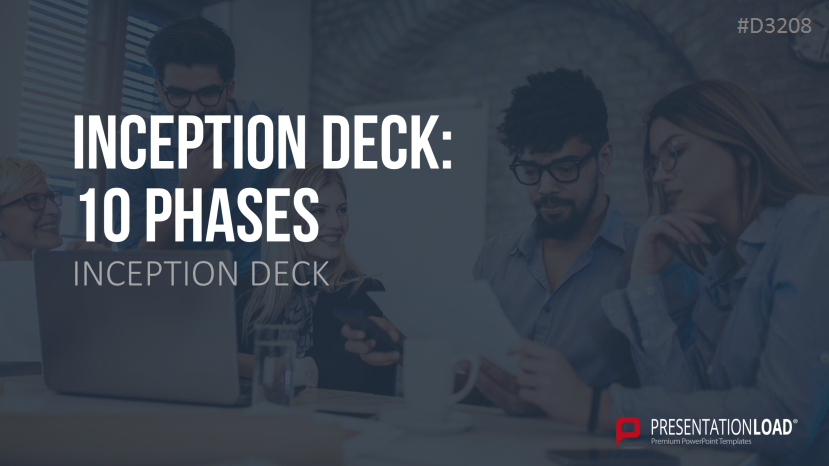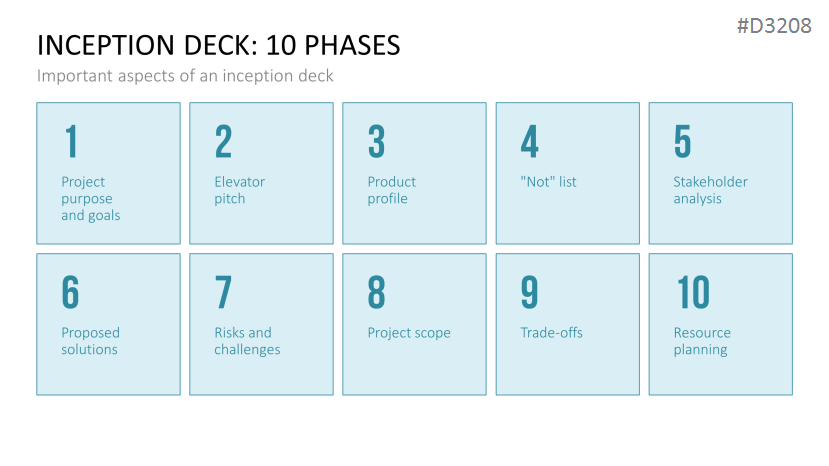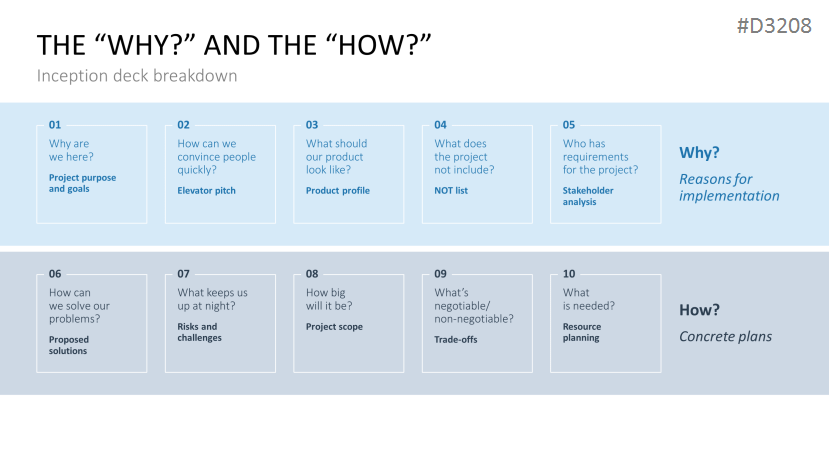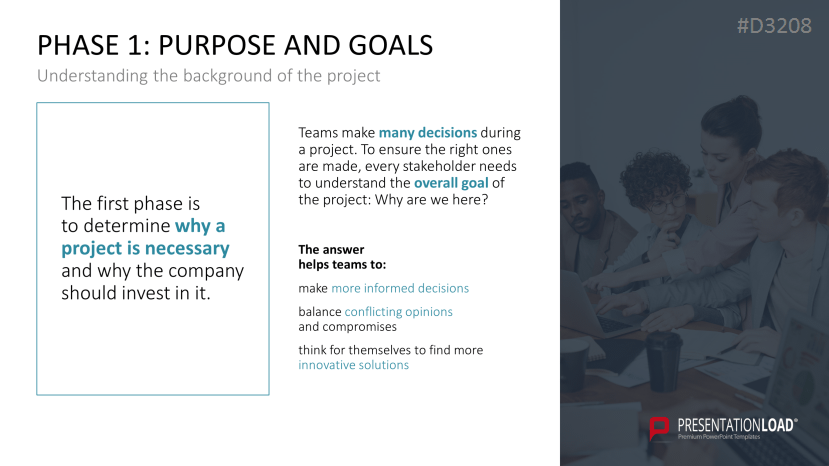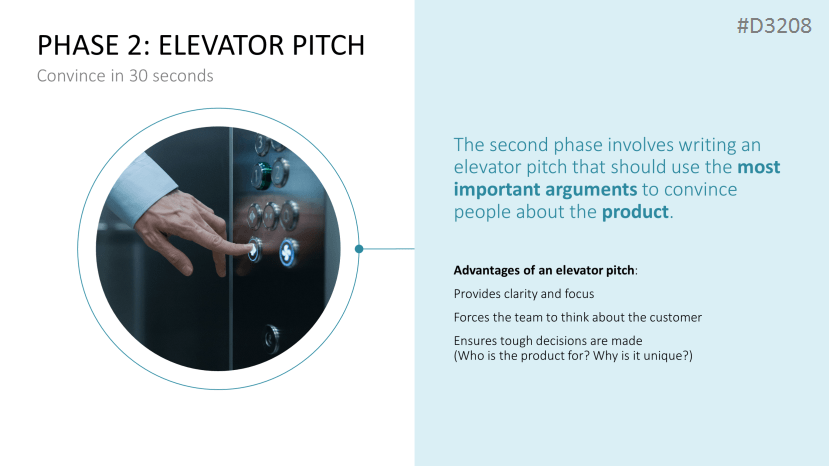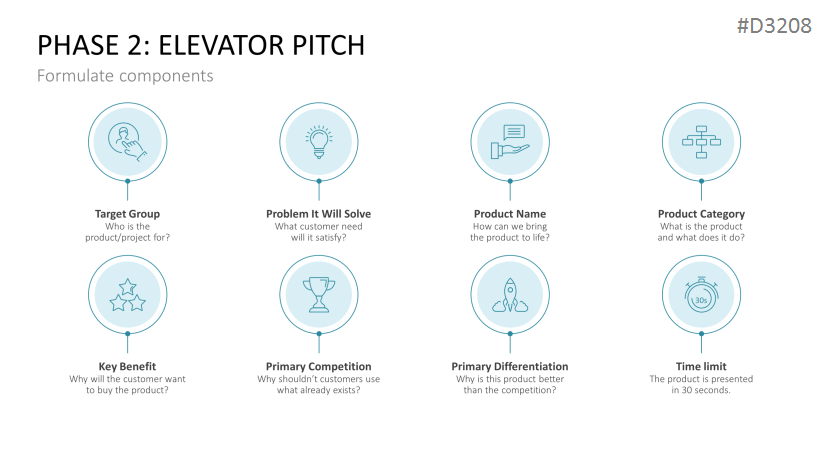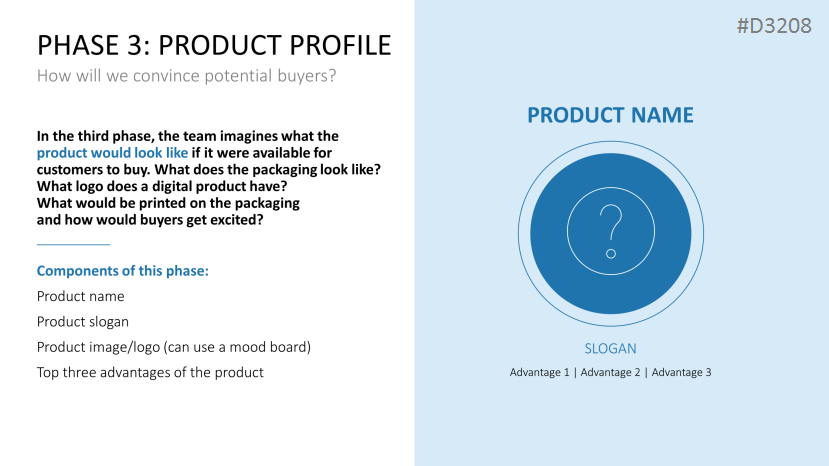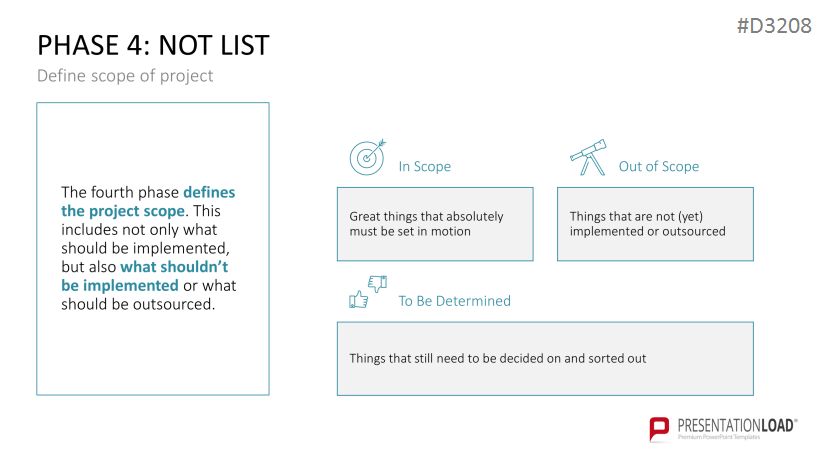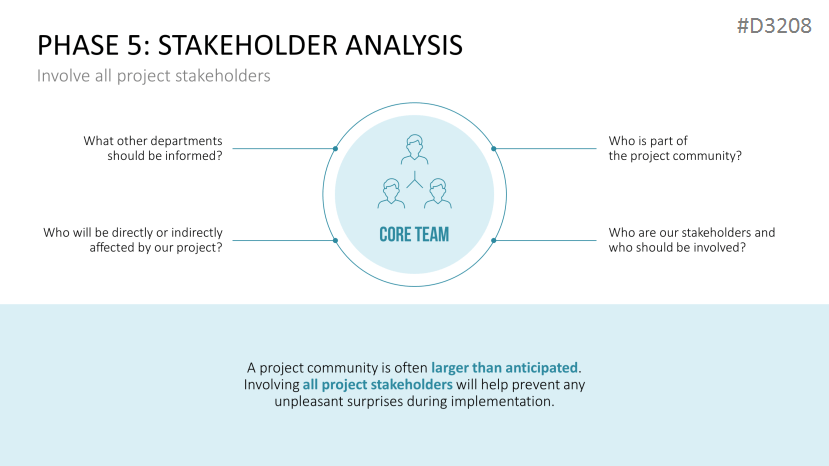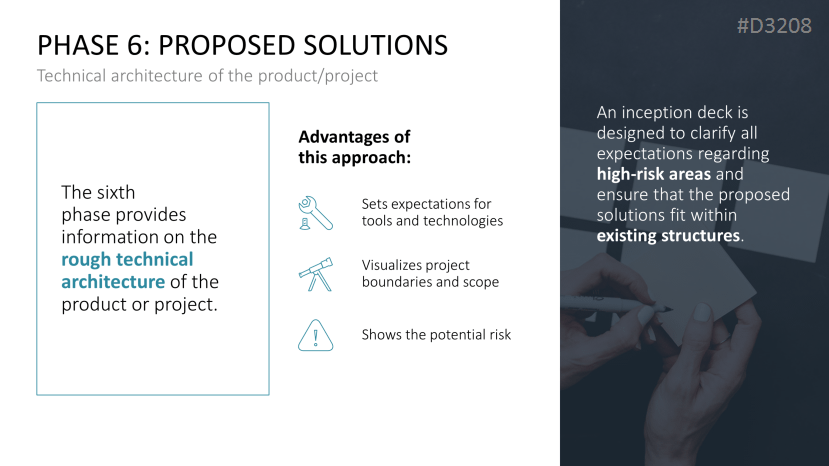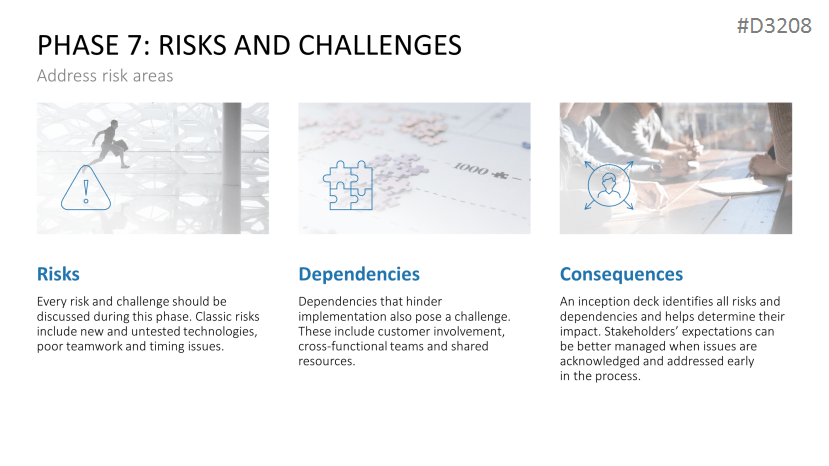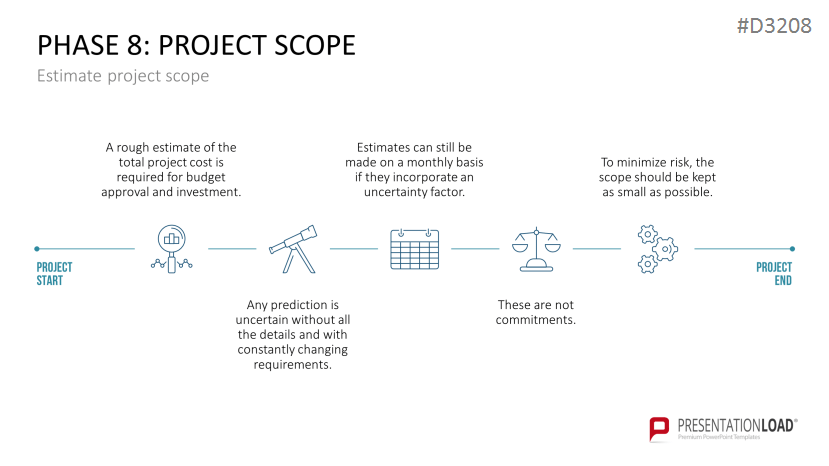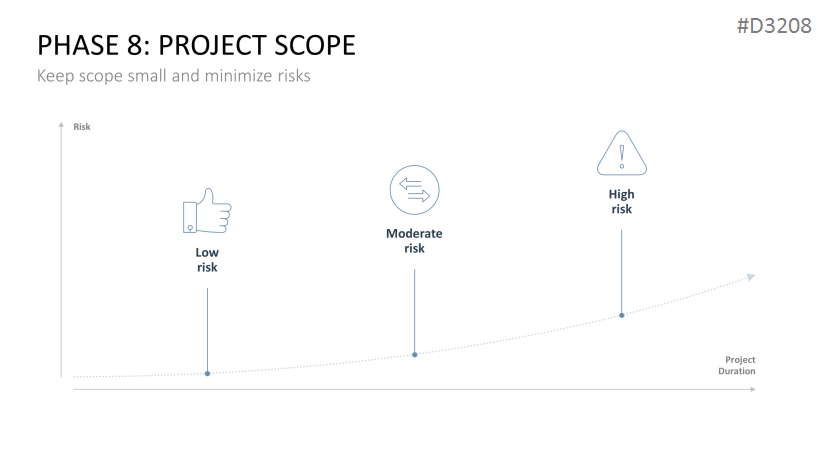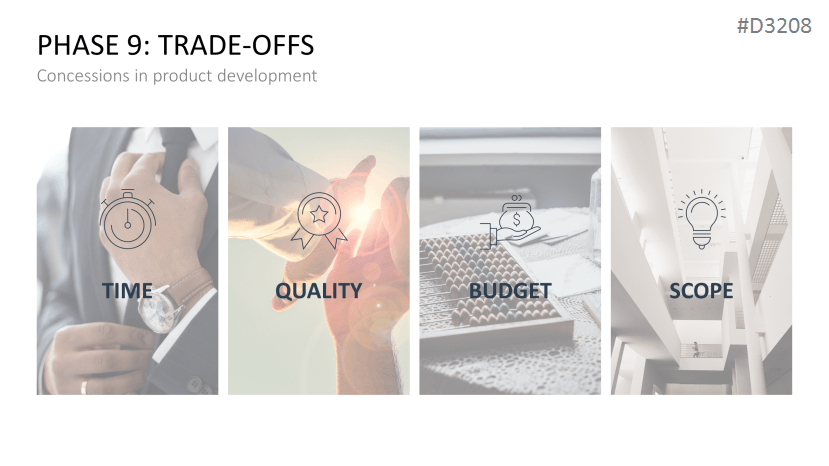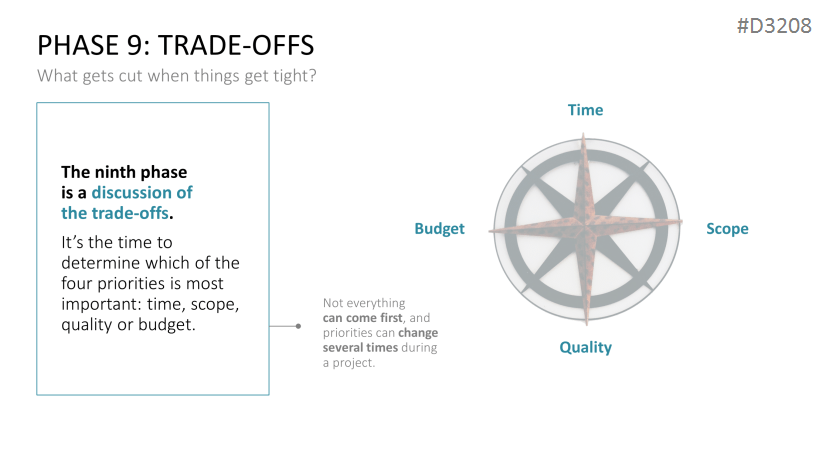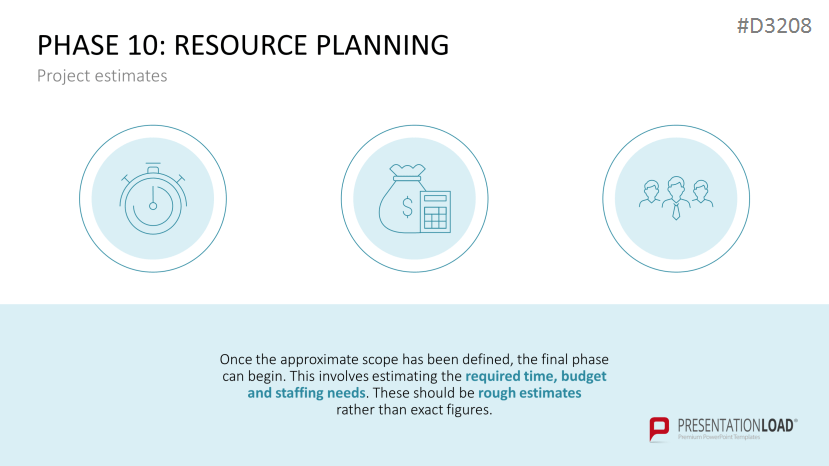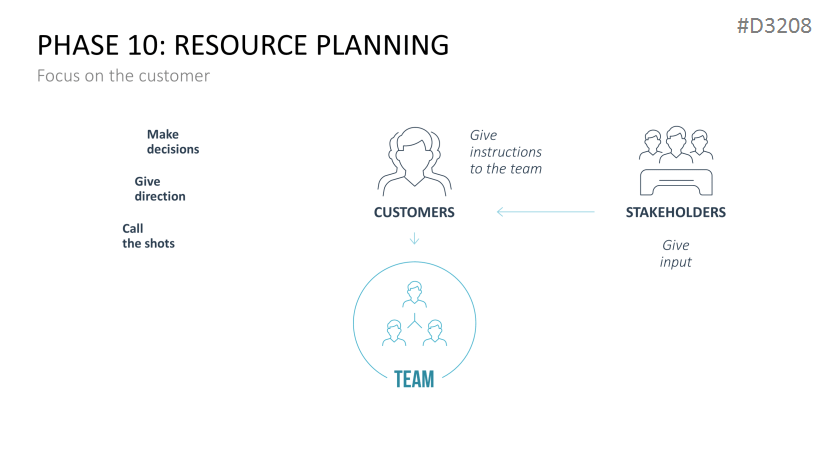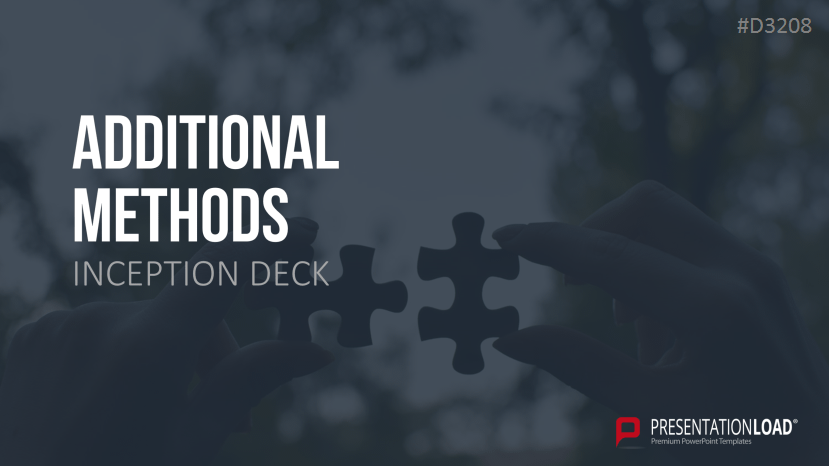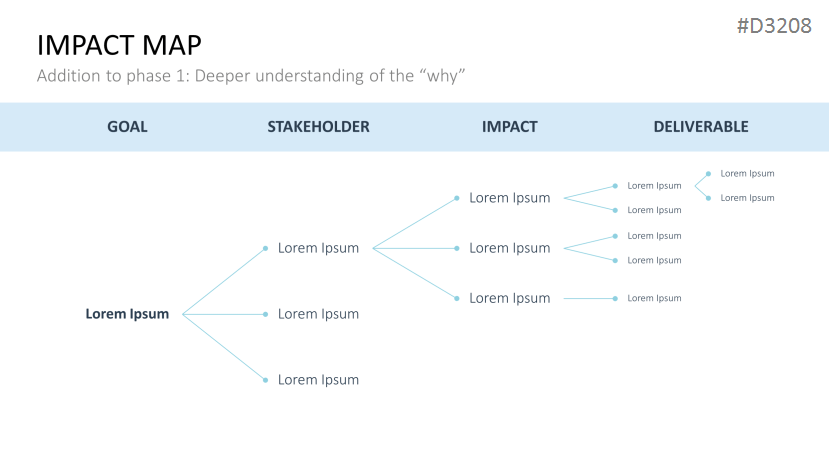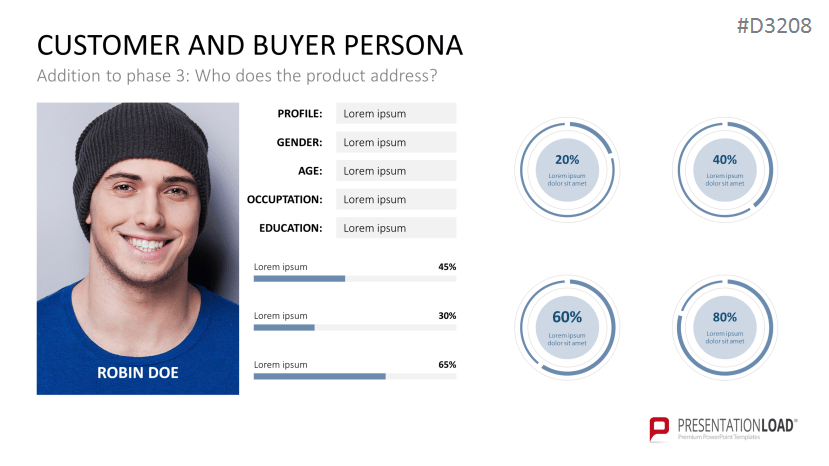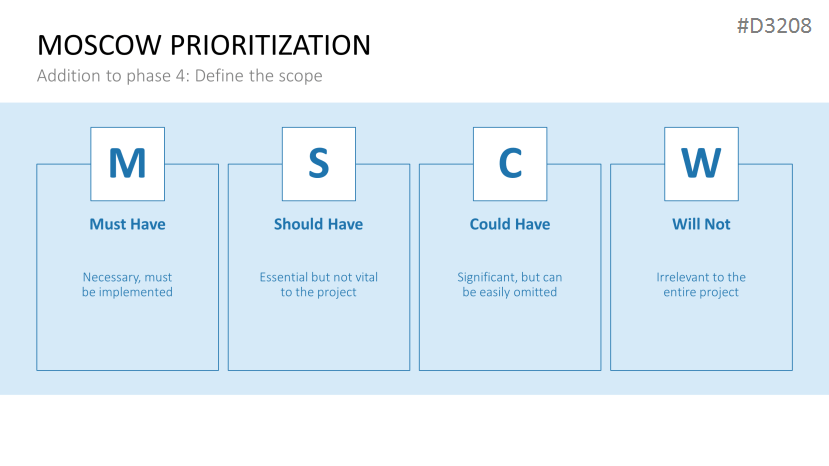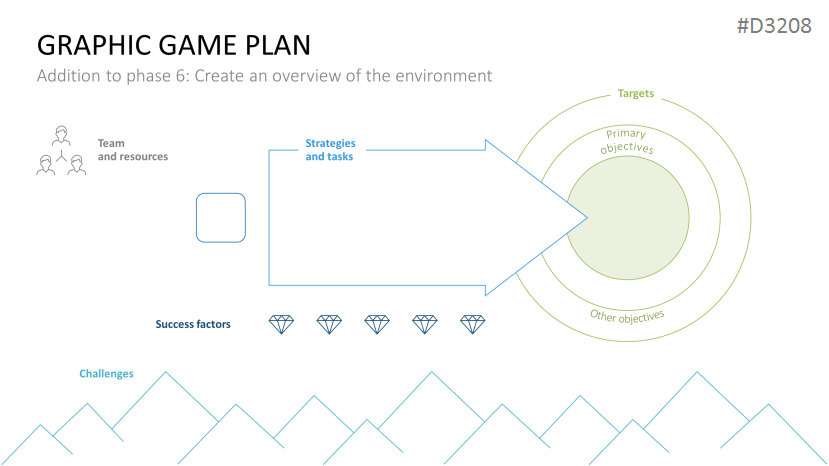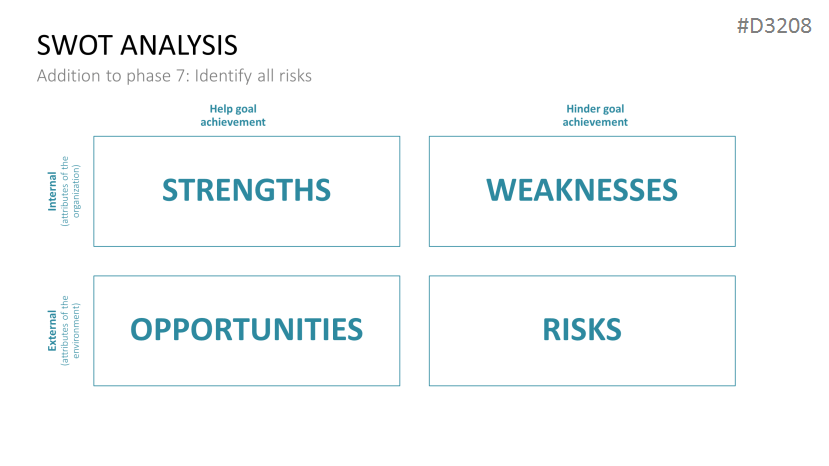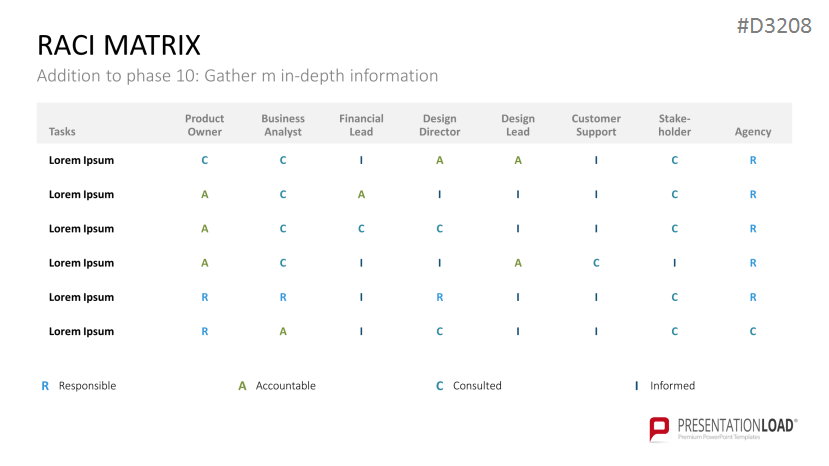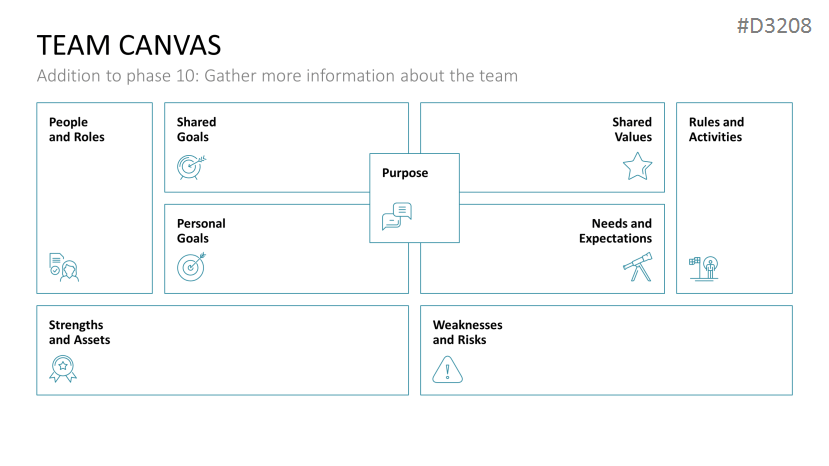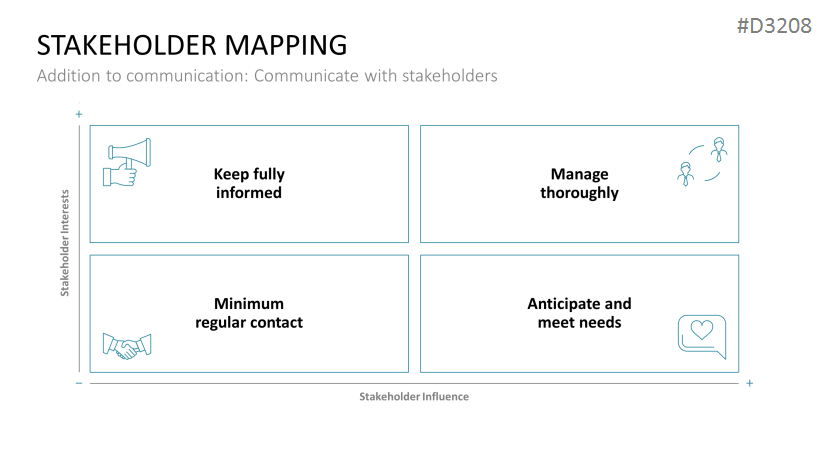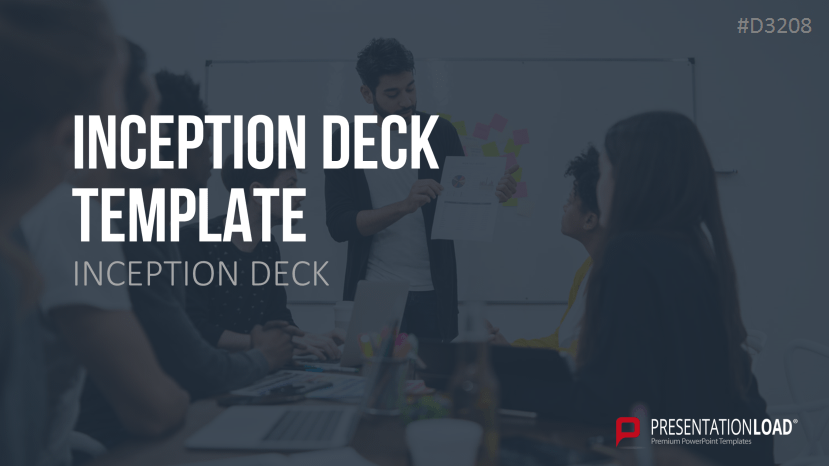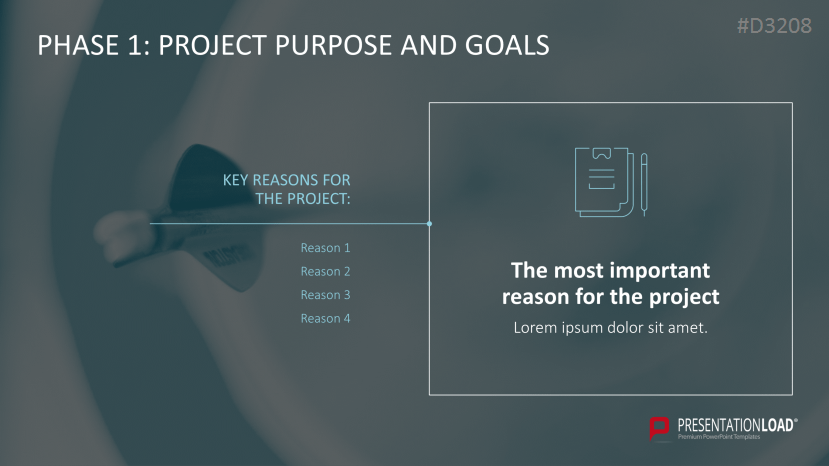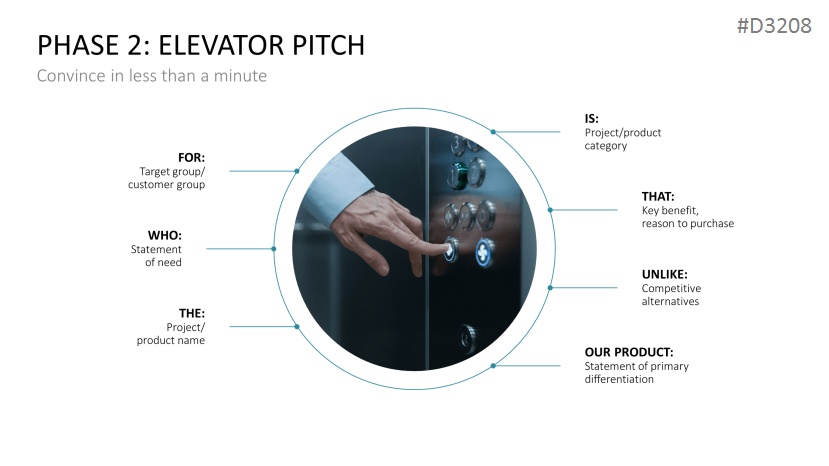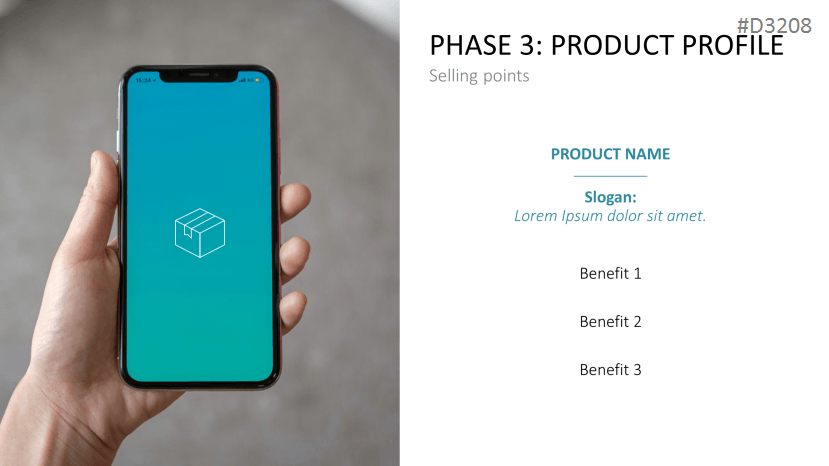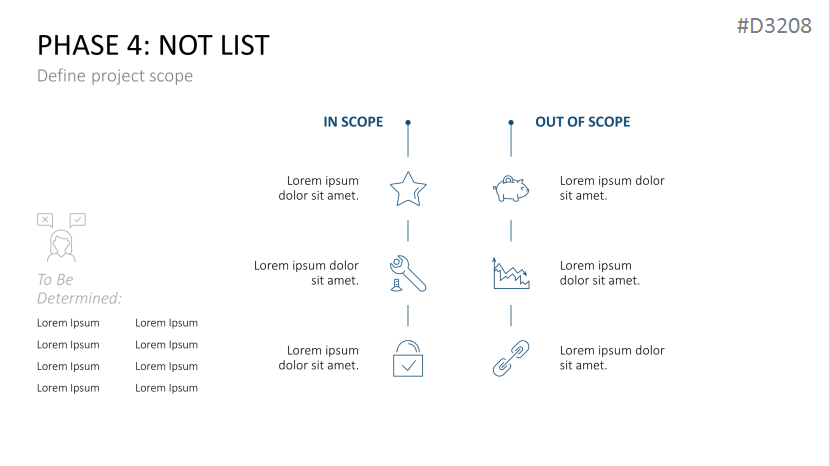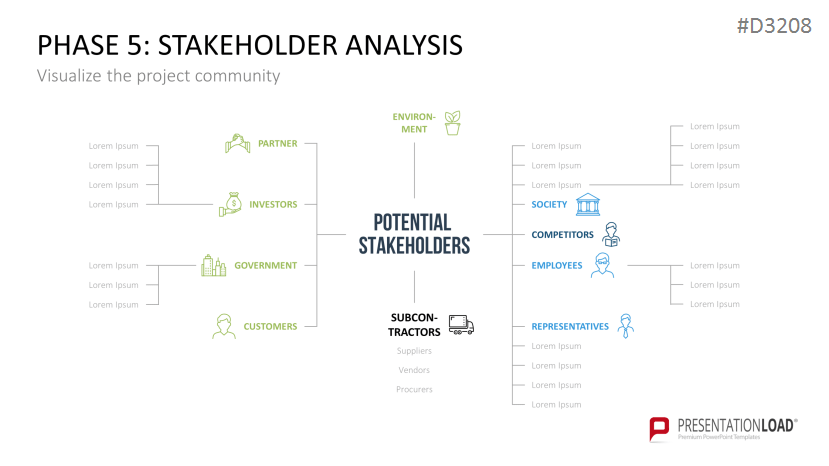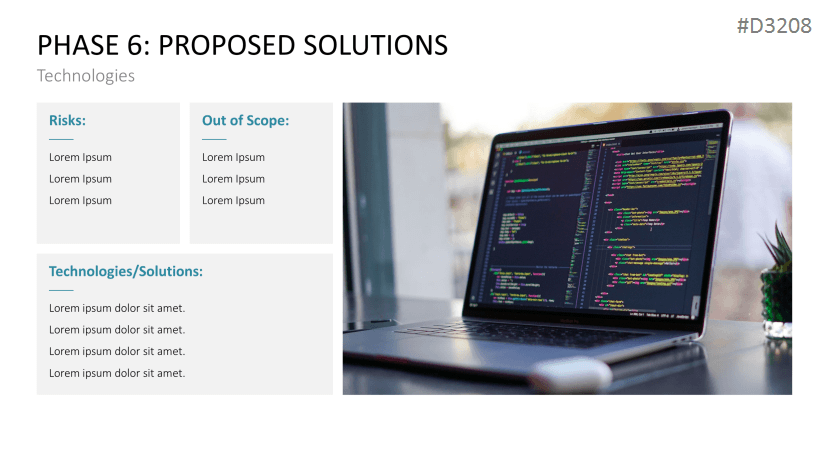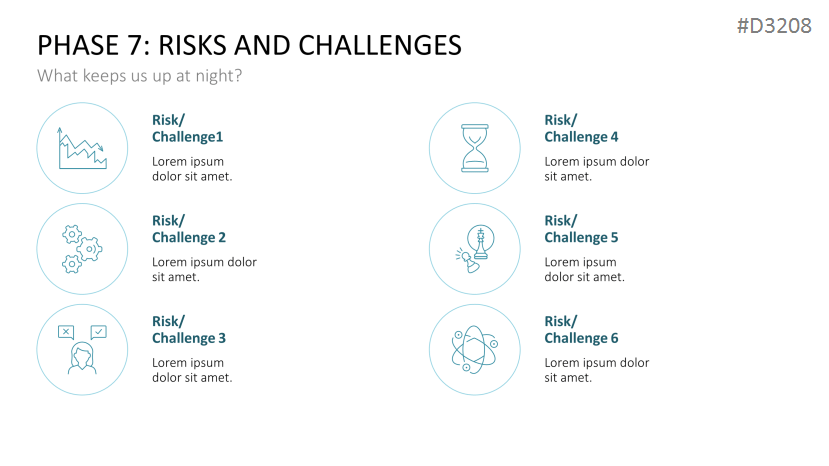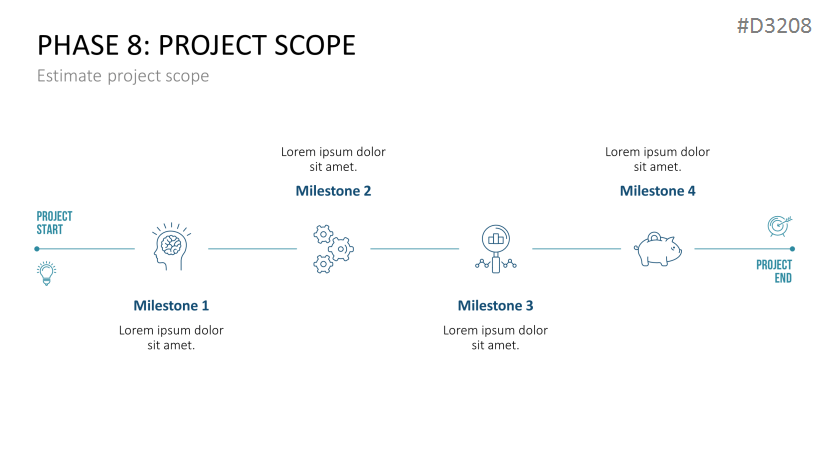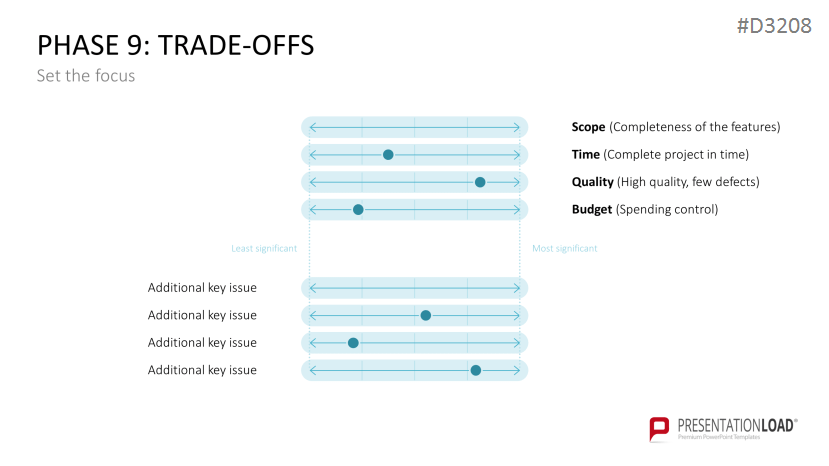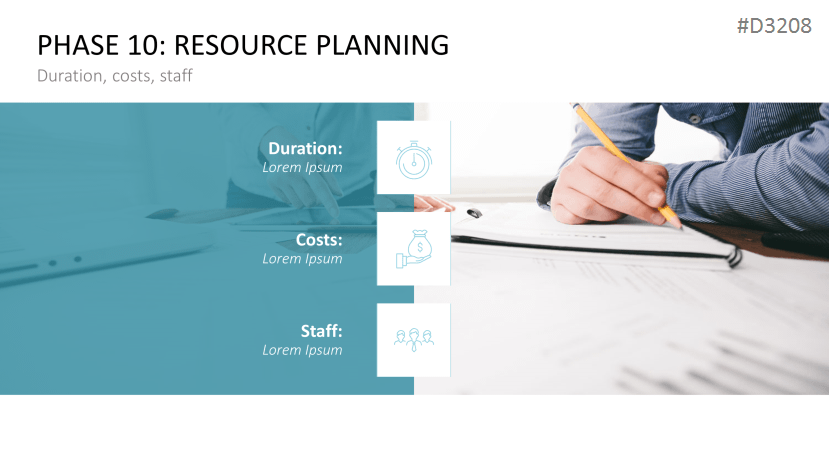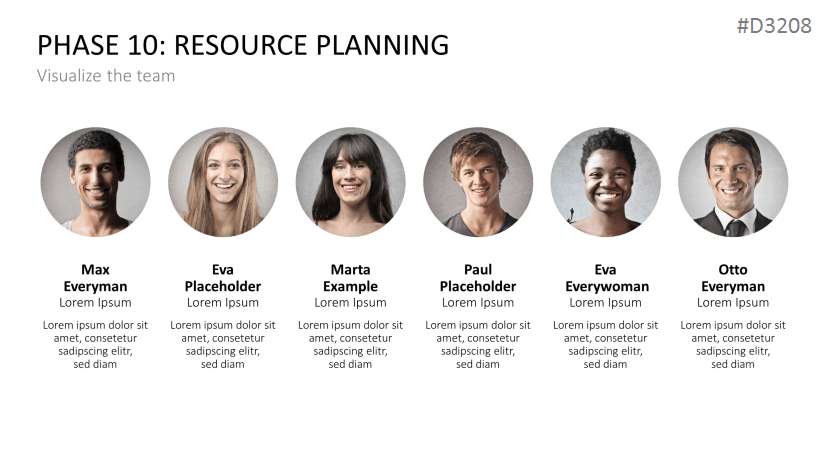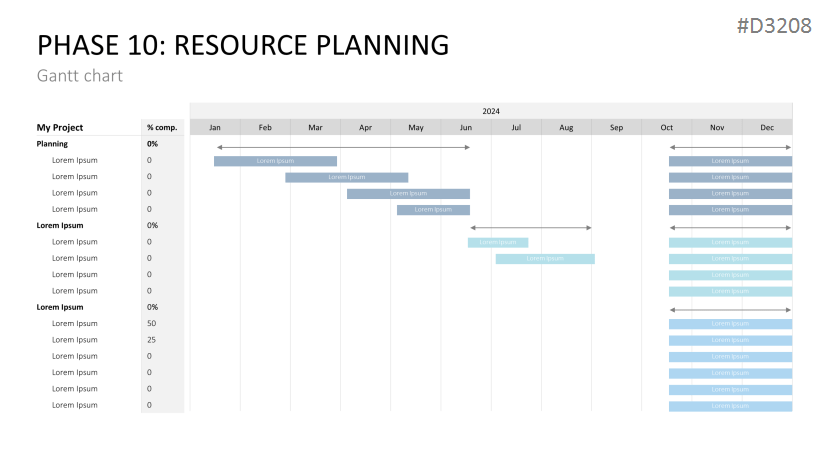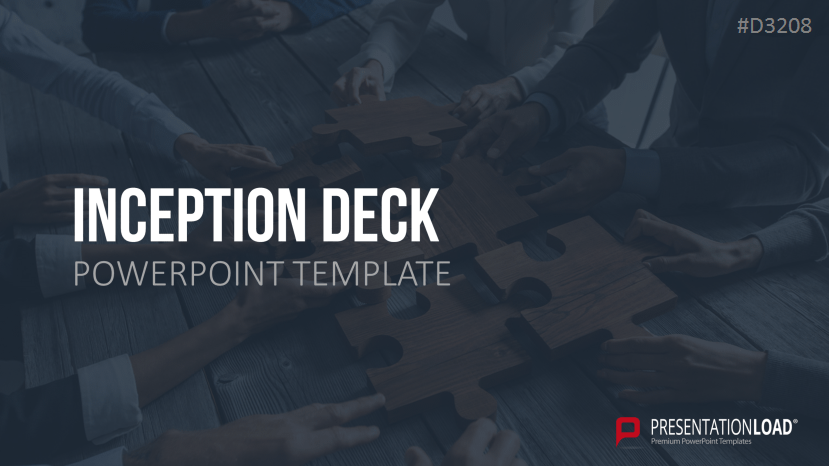
What is an inception deck?
The inception deck is a strategic tool in expectation management that enables its user to align the expectations of all project participants. Differing expectations are a major challenge in project management and a potential cause of misunderstandings and conflicts. An inception deck reveals these expectations and initiates a detailed discussion so that the project’s strategic starting point is clear and accepted by everyone before implementation begins. This is how an inception deck bridges the gap between the strategic decisions regarding the product vision and when the project team starts its work. Although it’s traditionally an Agile inception tool in Scrum, an inception deck can be used by any company. In this process it falls under the product owner’s responsibility, who handles its implementation and application.
The ten phases of an inception deck
An inception deck guides stakeholders and the project team through ten phases. They include the project’s purpose and goals, an elevator pitch, product profile, a NOT list, stakeholder analysis, proposed solutions, project scope, trade-offs, and resource planning. Each of these phases presents a task for both team and stakeholders, which provides a deeper understanding of the project and the project process. This allows conflicting interests and priorities to be resolved until all details have been clarified at the end of the inception deck.
How can an inception deck become even more effective?
The inception deck is perfectly complemented by other methods and tools. While the phases are complete on their own, incorporating additional methods can make it easier for users to delve deeper into certain aspects of the project. A good example is the impact map, which stakeholders fill out to visualize the purpose and goals of the project and understand relationships. The team canvas also provides insights into the required manpower and responsibilities.
Everything you need for your own inception deck in one set
Our new Inception Deck PowerPoint template gives you everything you need to apply the method in your organization. Use in-depth information on an inception deck’s importance and application to introduce the method to your company and stakeholders. Together with your team and stakeholders, you can fill out our professionally designed Inception Deck template with information about your project and augment it with additional tools.
With the Inception Deck for PowerPoint:
- you will receive information about its importance and how to use it.
- you can use the editable template to apply the method in your company.
- you can use the additional methods and tools to enhance your inception deck.
This PowerPoint template includes:
- Expectations in project management
- Expectations and misunderstandings
- Conflicting interests among stakeholders
- Different project expectations
- Expectation management and the inception deck
- What is an inception deck?
- Definition
- Objectives of an inception deck
- Impact of an inception deck
- Why use an inception deck?
- Who should use an inception deck?
- What Is Unique About an Inception Deck?
- Agile Inception in Scrum
- Inception deck: What it is not
- Inception deck: 10 phases
- The “why?” and the “how?”
- Phase 1: Purpose and goals
- Phase 2: Elevator pitch
- Phase 3: Product profile
- Phase 4: NOT list
- Phase 5: Stakeholder analysis
- Phase 6: Proposed solutions
- Phase 7: Risks and challenges
- Phase 8: Project scope
- Phase 9: Trade-offs
- Phase 10: Resource planning
- Additional methods
- Impact map
- Customer and buyer persona
- MoSCoW prioritization
- Graphic game plan
- SWOT analysis
- RACI matrix
- Team canvas
- Stakeholder mapping
- Inception deck template
- Phase 1: Purpose and goals
- Phase 2: Elevator pitch
- Phase 3: Product profile
- Phase 4: NOT list
- Phase 5: Stakeholder analysis
- Phase 6: Proposed solutions
- Phase 7: Risks and challenges
- Phase 8: Project scope
- Phase 9: Trade-offs
- Phase 10: Resource planning"
